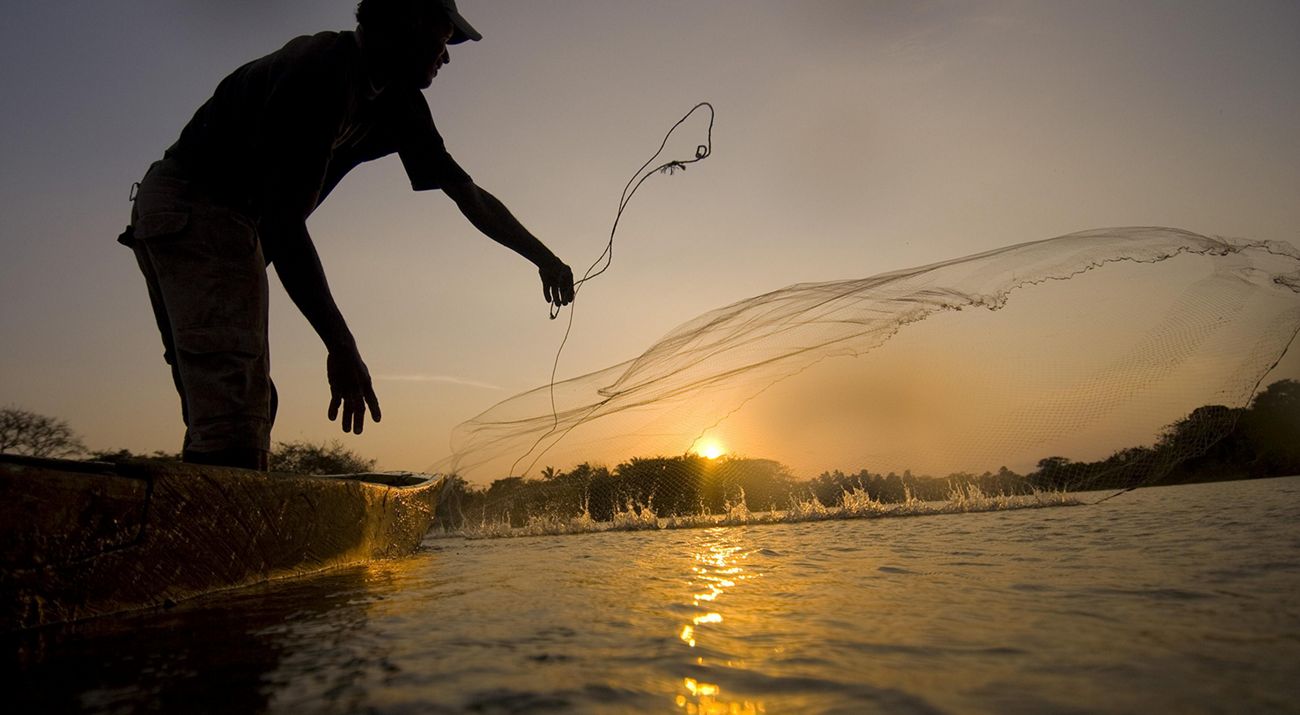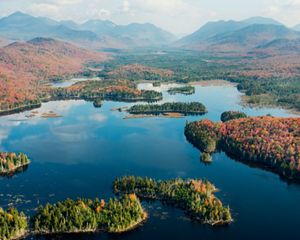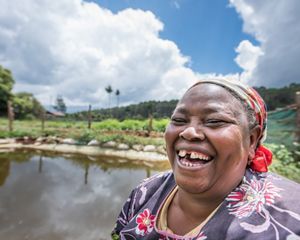Healthy Rivers Lead to Healthy Communities
By Michele Sullivan, President of the Caterpillar Foundation
Rivers are life—they flow through the heart of the communities that surround them, providing food, jobs, transportation, energy and, of course, water. But environmental occurrences and human interference such as severe weather, pollution or overfishing all threaten rivers and, subsequently, the people who rely on them. And unfortunately, the greatest impact is most often felt by the most vulnerable members of the surrounding communities.
The fact is that people living in poverty tend to rely more heavily on natural resources to survive, and consequently they are the most impacted when resources are threatened. Without consistent access to healthy rivers and watersheds, generations of people struggle to meet their basic needs and become trapped in poverty. But when river banks and wetlands are rehabilitated, a true transformation occurs. Rivers thrive, farmers have more area to farm, and fish species revive and diversify. Restoration creates a trickle-down effect into nearly every aspect of life and has a profound positive impact on communities around the world.
As part of the Caterpillar Foundation’s work to alleviate poverty, we have worked with The Nature Conservancy (TNC) for over 20 years to restore rivers and wetlands—and I have seen firsthand that as the health of rivers and wetlands improves, so do the lives of the people who live along them.
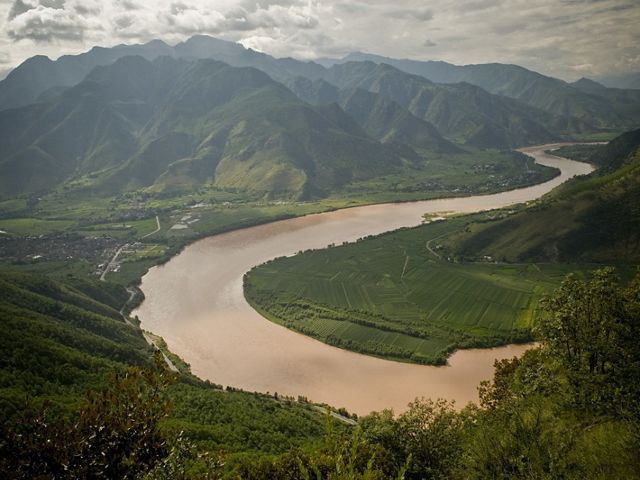
Through our Great Rivers Partnership with TNC, we have funded improvements of some of the world’s most impressive rivers: The Mississippi River and the Colorado River in the United States, the Magdalena River in Colombia, and the Yangtze River in China. We’ve witnessed the incredible transformation not only of the natural areas, but of the communities surrounding them.
With the Foundation’s support, TNC has worked to map property boundaries and identify deforestation in the Amazon; implemented the first fish monitoring system in China, where 400 million people depend on the Yangtze River for their jobs, their food, and vital economic development; and helped farmers upriver from Nairobi learn to conserve water, soil and nutrients.
In particular, TNC’s work in Kenya through the Nairobi Water Fund is a great example of the transcended impact that results from nature conservation. The Tana River is the longest river in Kenya, flowing from the Aberdare mountains north of Nairobi to the Indian Ocean. It supplies 95 percent of the water used by more than 9 million people in and around Nairobi, as well as 70 percent of the country’s hydropower.
Over the last few decades, farming has exploded in the Upper Tana, and some practices led to highly vulnerable, unprotected soil. During the rainy seasons, soil would wash into the rivers, causing massive amounts of sediment to clog up reservoirs, which in turn increased the price of water treatment, disrupted water services, and reduced land quality and productivity for farmers. Over time, accelerating population growth along the river only increased the demand for food, electricity and especially water, which grew by 250 percent since 2004.
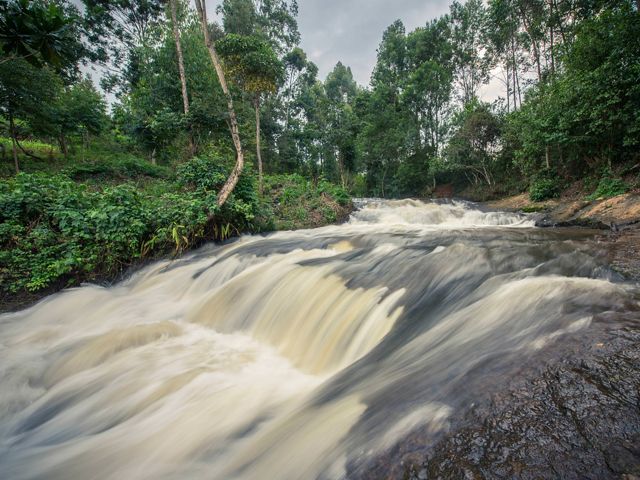
In March 2015, TNC launched the Nairobi Water Fund, which aimed to create an endowment dedicated to reducing erosion, improving water quality, and regulating water supply, all the while enabling public and private downstream water users to jointly invest in upstream land conservation. The Caterpillar Foundation supported specific programming and projects to restore and protect the Tana River and improve Nairobi’s water security in 2017.
After just two years of TNC’s work, the results have already demonstrated the importance of thoughtful intervention through conservation, and its broader impact on the surrounding communities. The Fund is now working directly with more than 15,000 farmers and reaching an additional 25,000 who are becoming active participants in water conservation through training, resources and equipment. They are learning how to use less water for irrigation and how to farm more responsibly, and they are seeing firsthand the benefits that restoring nature brings to their lives.
Faces of the Nairobi Water Fund
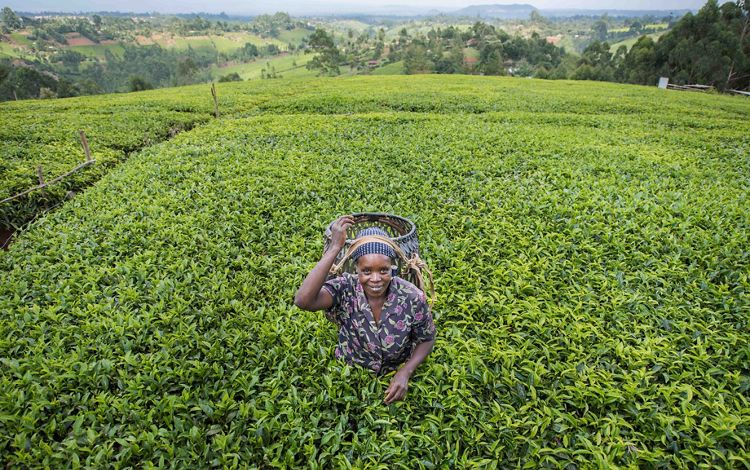
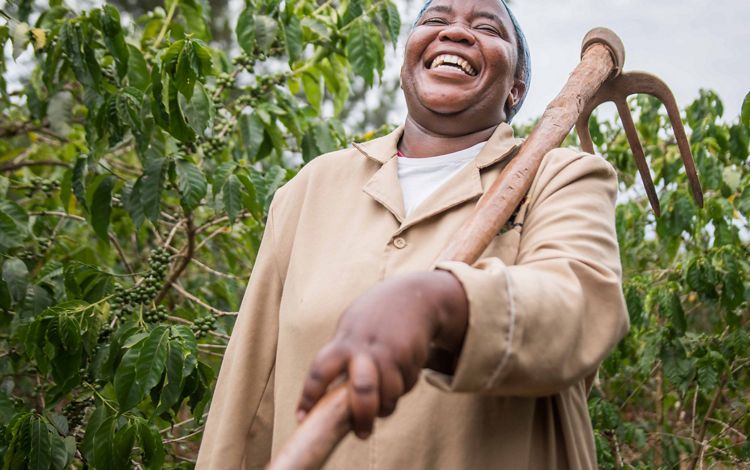
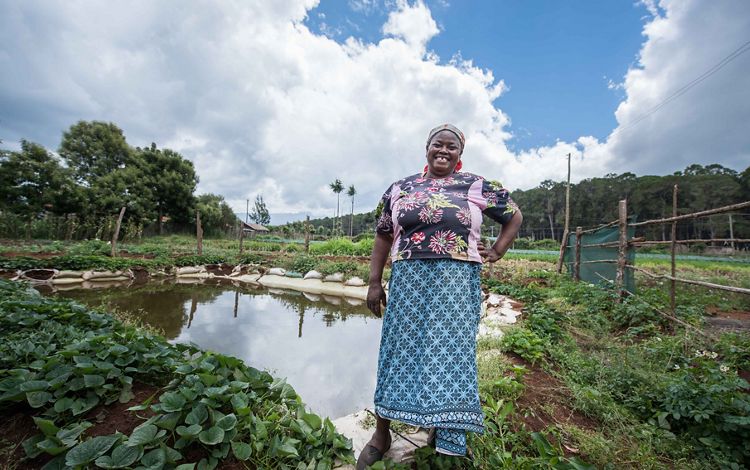
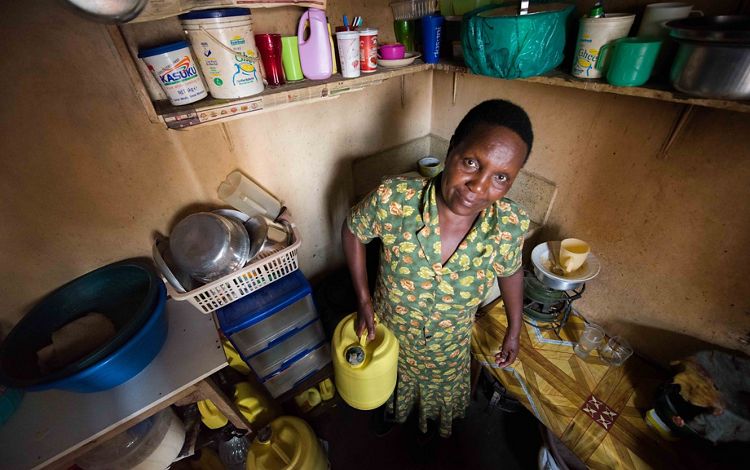
In addition, Fund activities have reduced water delivery interruptions from sediment spikes by 30 percent, established sustainable management on 48,562 hectares of land, and are planting 175,000 trees a year. As these newly-planted trees hold the soil, farms will become more productive and will yield more revenue and food for families. In the long term, families with more resources have more time for education and entrepreneurship and tend to lead heathier lives, which not only helps those living in the areas now, but also the generations that will follow.
Smart interventions like the Nairobi Water Fund in Kenya are helping conserve our planet’s rivers and wetlands so that more people can benefit from them—upriver and downriver. Restoring ecosystems by working with farmers, teaching conservation to communities that fish, and planting trees makes a difference. By protecting our natural infrastructure, like forests, rivers and wetlands, we can improve the quality of life of those who rely on these resources for their survival and help empower communities with the tools they need to lift themselves out of poverty.
When river ecosystems are degraded, the greatest impact is often felt by the most vulnerable communities. But working with these communities to restore rivers improves livelihoods and natural areas.
Michelle Sullivan is President of the Caterpillar Foundation and Director of Corporate Social Innovation at Caterpillar Inc.
Global Insights
Check out our latest thinking and real-world solutions to some of the most complex challenges facing people and the planet today.
